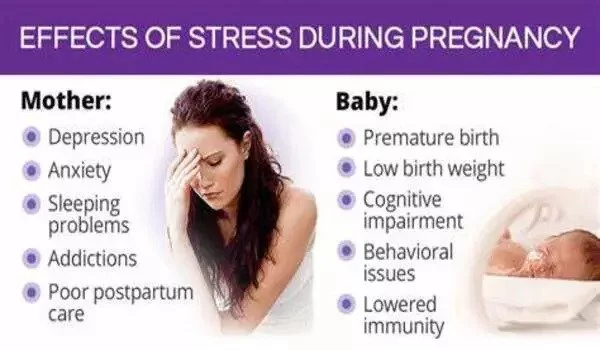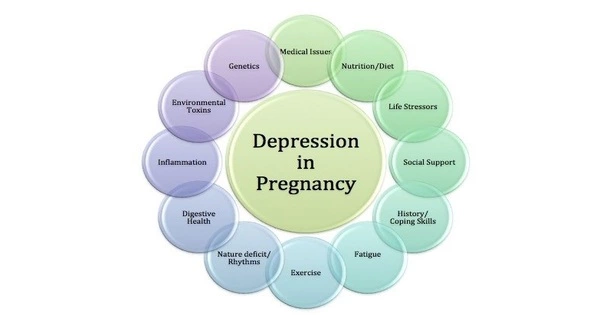According to research published by the American Psychological Association, children whose mothers are highly stressed, anxious, or depressed during pregnancy may be at a higher risk for mental health and behavioral issues during their childhood and adolescence.
“Our findings suggest that psychological distress during pregnancy has a small but persistent effect on children’s risk for aggressive, disinhibited, and impulsive behaviors,” said study author Irene Tung, PhD, of California State University Dominguez Hills. “These findings add to the evidence that providing widely accessible mental health care and support during pregnancy may be a critical step to help prevent childhood behavior problems.”
Tung and her colleagues examined data from 55 studies involving over 45,000 people. All of the studies looked at women’s psychological distress during pregnancy (such as stress, depression, or anxiety) and then their children’s “externalizing behaviors” (mental health symptoms directed outward, such as attention deficit hyperactivity disorder or aggression).
Overall, the researchers discovered that women who reported more anxiety, depression, or stress while pregnant were more likely to have children with more ADHD symptoms or who struggled with aggressive or hostile behavior, according to parents or teachers. The findings were reported in the journal Psychological Bulletin.
Our findings suggest that psychological distress during pregnancy has a small but persistent effect on children’s risk for aggressive, disinhibited, and impulsive behaviors. These findings add to the evidence that providing widely accessible mental health care and support during pregnancy may be a critical step to help prevent childhood behavior problems.
Irene Tung
Mothers’ mental health during pregnancy has long been linked to children’s externalizing behaviors, according to research. Many previous studies, however, have not distinguished the effects of stress, anxiety, or depression during pregnancy from the effects of psychological distress in parents after a child is born.
The current study only included research that measured mothers’ psychological distress both during and after pregnancy. Even after controlling for later (postnatal) psychological distress, they discovered that prenatal distress, in particular, increased children’s risk of developing externalizing problems.
The effect held true regardless of whether the children were boys or girls. It held for children in early childhood (ages 2-5), middle childhood (6-12), and adolescence (13-18), though the effect was strongest in early childhood.

The findings are consistent with theories that suggest that exposure to stress hormones in utero can affect children’s brain development, according to the researchers. Future research should focus on increasing diversity to understand the cultural and socioeconomic variables that affect prenatal stress and to develop effective interventions, according to Tung.
“Most previous research has concentrated on white, middle-class, and more educated samples.” However, racism, economic disparities, and a lack of health-care access are all known stressors during pregnancy. “Knowing how psychological distress during pregnancy affects underrepresented families is critical for developing equitable public health policies and interventions,” she says.
She and her colleagues are currently working on two studies to better understand the types of support and resources that promote resilience and recovery from stress during pregnancy, particularly for families experiencing health inequities. The goal is to help inform culturally inclusive preventive interventions during pregnancy to support parents and children’s early mental health resilience and well-being.





